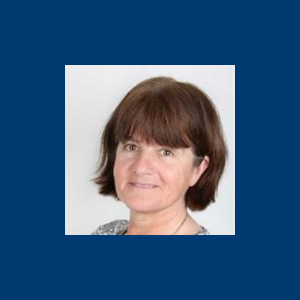The following content was taken from the RTÉ News story written by Eithne Dodd and published on 15 November 2025.
Families requiring access to genetic testing and clinical genetic expertise are facing significant challenges due to long waiting times and lack of access, a new report has found.
-300x125.jpg) A research team in UCD examined current Irish clinical genetic services over a two-year period, commissioned by The Adelaide Health Foundation.
A research team in UCD examined current Irish clinical genetic services over a two-year period, commissioned by The Adelaide Health Foundation.
The report gave eight recommendations including ensuring families get timely access to clinical genetics expertise.
They were: The creation of a national genetic testing directory, ongoing HSE support and investment in clinical genetics teams, formal recognition of the genetic counselling profession, and a centralised, digitally accessible HSE laboratory to allow genetic testing visibility across labs and clinicians.
Principal investigator of the report, UCD School of Medicine’s Professor Sally Ann Lynch, said the study highlights "the imperfect system staff are currently working in".
Prof Lynch’s report also identified limited inter-operability between hospital IT systems leading to confusion and possible duplicate tests being ordered.
Speaking on RTÉ's Morning Ireland, she explained that the genetic testing that is done covers conditions such as cystic fibrosis and Huntington’s disease but also breast cancer and sudden death syndrome, which all have a genetic component.
 "So, our job is to estimate that risk for individuals within a family," said Professor Lynch.
"So, our job is to estimate that risk for individuals within a family," said Professor Lynch.
"And if people are at high risk, offer advice on ways to either prevent the condition happening or else.
"For example, if there's high risk of having an affected child with a serious condition, what reproductive options would be available to them, that's our role."
She added that genetic testing is very expensive with many of the tests costing over €1,000 per test.
Professor Lynch said that in Northern Ireland, all tests are sent to a lab in Belfast "which is staffed appropriately and has the clinical scientists with the expertise and experience to determine the best test that should be done under the circumstances, and also they can pick up whether the test has been duplicated".
In contrast, she said, in the Republic of Ireland, "we have a rather scattergun approach to genetic testing and we're not picking up duplicates because the samples are being dispatched from all over individual hospitals and they're not being just channelled through one centre".
This leads to duplication occurring and that results in an estimated €1m to €2m being wasted on tests being redone unnecessarily.
"A lot of genetic tests are once in a lifetime tests," she said.
"You don't need to repeat them. And what we're noticing is that duplication does occur.
"So, one part of the report looked at one test and we could see a duplication rate of about 6% and a waste for that particular test of about €21,000."
"There is no interconnectivity between different hospitals, IT systems.
"Whereas if it was done in one laboratory and you'd be able to improve there, there are clinical risks associated with the sort of scattergun approach as well, which is a huge concern."
Ms Lynch said that a more centralised approach is needed.
"So, people know what tests are being done and also that there's a better audit trail of a sample, so we know where it's gone, and also that the parental samples where possible track with the child samples."
She welcomed the tender put out by the National Genomics and Genetics office saying it will see everything channelled through one office.
The Adelaide Health Foundation, a voluntary foundation focused on advancing and promoting equitable access to healthcare services and education in Ireland has committed €1.5 million towards improving Ireland’s genetic counselling and testing services over the next three years.
The foundation will support projects which improve the patient experience, beginning with an educational focus, including the development of an accredited programme for Health and Social Care Professions and an MSc in Genetics.
The full RTE news article can be found here.
The full study report can be read here.